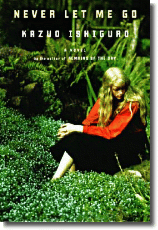Penelope Lively is the author of many prize-winning novels and short story collections for both adults and children. She has twice been shortlisted for the Booker Prize; once in 1977 for her first novel,
 The Road to Lichfield
The Road to Lichfield, and again in 1984 for
According to Mark. She later won the 1987 Booker Prize for her highly acclaimed novel
Moon Tiger. Her novels include
Passing On, shortlisted for the 1989 Sunday Express Book of the Year Award,
City of the Mind,
Cleopatra's Sister and
Heat Wave. Her new novel is
Family Album.
For the
Wall Street Journal, she named a five best list of books that evoke time and place. One title on her list:
The Boys' Crusade
by Paul Fussell
Modern Library, 2003
In 1944, during the run-up to D-Day, two million young American men were given 17 weeks of basic training and shipped to Europe. Over the course of 11 months, from the Normandy landings to Germany's surrender, 135,000 U.S. infantrymen were killed and half a million wounded. Paul Fussell was among the soldiers who came home. He offers a brief, selective and forceful account of that period in "The Boys' Crusade"— and boys is what they largely were. The jacket of my copy shows the face of what one can only see as a child, swamped by his helmet. The book makes liberal use of eye-witness quotation—one soldier describes finding German corpses, "gray teeth, gray hands, worn boots, no identities ... dead meat, nothing to grieve," and being "stupefied by the death we'd breathed"—an effect that plunges the reader into specific actions and the day-by-day routines of combat. But "The Boys' Crusade" also evokes the outlook of those teenagers—their blithe fidelity to the idea of America as the best and only modern country in the world, and their rapid exposure to the grim realities of an annihilating war.
landings to Germany's surrender, 135,000 U.S. infantrymen were killed and half a million wounded. Paul Fussell was among the soldiers who came home. He offers a brief, selective and forceful account of that period in "The Boys' Crusade"— and boys is what they largely were. The jacket of my copy shows the face of what one can only see as a child, swamped by his helmet. The book makes liberal use of eye-witness quotation—one soldier describes finding German corpses, "gray teeth, gray hands, worn boots, no identities ... dead meat, nothing to grieve," and being "stupefied by the death we'd breathed"—an effect that plunges the reader into specific actions and the day-by-day routines of combat. But "The Boys' Crusade" also evokes the outlook of those teenagers—their blithe fidelity to the idea of America as the best and only modern country in the world, and their rapid exposure to the grim realities of an annihilating war.
Read about
the other four books on Lively's list.
Learn about
the book that changed Penelope Lively's life.
--Marshal Zeringue








































